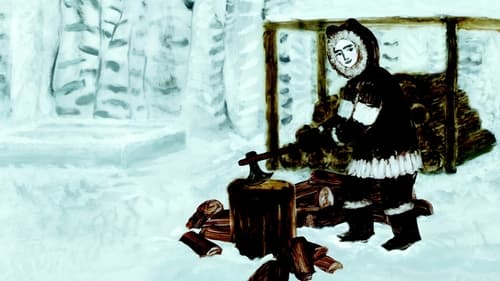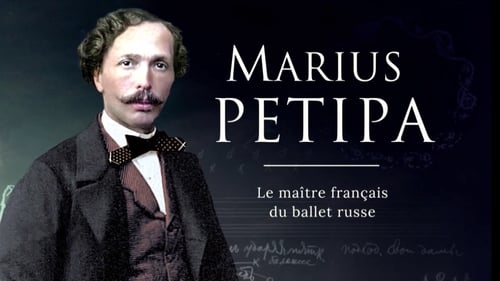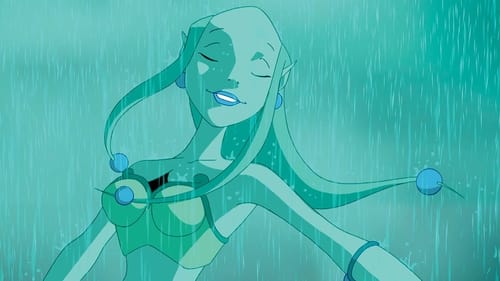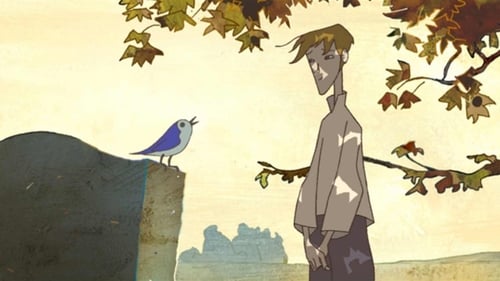
Marie (voice)
Un pequeño pueblo saqueado, una familia obligada a huir. Los dos hijos mayores, Kyona y Adriel, son rápidamente separados de sus padres y afrontan solos el camino del exilio. Se embarcan en un heroico viaje que los lleva de la infancia a la adolescencia en busca de refugio, paz y la esperanza de encontrar cobijo y a su familia. Atravesando un continente desgarrado por la guerra y la persecución a los migrantes, estos valientes hermanos sobreviven a increíbles desafíos.

self
When he arrives in Saint Petersburg, at the age of 29, Marius Petipa is just an obscure dancer who fled western Europe to escape his debts. He is far from imagining that his engagement in the troupe of the Russian Imperial Ballet, then rather mediocre, will reveal him, forty years later, as one of the greatest choreographers in the history of dance. It is within the Bolshoi Kamenny theaters, then Mariinsky, in a still provincial capital where three productions a year are enough to satisfy an undemanding audience, that this native of Marseille will invent a new art of ballet, over the course of sixty of creations, between 1862 (La fille du pharaon) and 1895 (Le lac des cygnes).

Narration

Sylvie, la mère d'Audrey
With her baccalauréat under her belt, Audrey decides to continue her studies at Rennes university. She leaves the family nest, her best friend since childhood, and her boyfriend. Her new roommate introduces Audrey to political activism. From disillusions to difficulties, Audrey crosses paths with the young members of GRAL, a squatter group, who propose a different way of living and offer a new vision of the world. She decides to join them, becoming increasingly radical in the process.

The theme of homosexuality has been agitating the French political class for a long time. The victory of the left in the presidential election and then in the legislative elections has put questions of equality between homosexuals and heterosexuals back at the heart of the debates. Homo politicus looks back on 50 years of battles opposing French activists and elected officials.


Mère François
In a small town in the West of France, during the German Occupation, a room is requisitioned by a Wehrmacht captain, Werner von Ebrennac. The house where he now stays is inhabited by young Jeanne, who makes a living by giving piano lessons, and by her grandfather. Quite upset, the two "hosts" decide to resist the occupier by never speaking a word to him. Now Werner is a lover of France and its culture, and he tries to persuade them that a rapprochement between Germany and France would be beneficial for the two nations. Quite unexpectedly Jeanne, little by little, falls in love with Werner. At the same time, the Francophile officer loses his illusions, realizing at last that what Nazi Germany actually wants is to thrall France and to stifle its culture...

Chloé (Voice)
Para los Pyross, que eran adoradores del sol y dependían de él, el agua significaba muerte y desolación: les quemaba. La estación lluviosa también suponía la agitación de los dragones. Los monstruos se acercaban furtivamente a sus cuevas en Orfalaise e incluso mataban a algunos de ellos. Cada día esperaban los signos de la estación seca. Cuando el sol regresaba, los Pyross se embarcaban en una cruzada a través del desierto en busca de la gente que ellos consideran responsables de su mal: Los Hydross. Si ellos pudieran destruirles, el mundo sería mejor, un mundo sin dragones. Para los Hydross, el ciclo era opuesto: el calor del sol les convierte en estatuas, transformando sus cuerpos en piedra y dejandoles a merced de sus enemigos. Solo los beneficiosos efectos del agua podrían devolverles a la vida... La guerra entre los Pyross y los Hydross continuaba hasta el día en que Skän, un joven guerrero Pyross que había ido a una cruzada en el lejano desierto, fijó sus ojos en Kallisto.

(Voice)

(Voice)





